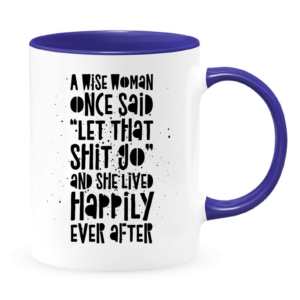What Should You Write About?

I was thinking about how my own little domestic dramas are really not very interesting, compared to massive forest fires and fleeing refugees and headlines in Mumbai or, for that matter, Kentucky.
This led to a kind of depressive, downward spiral (another one), hearing my wonderful father’s voice in my head saying, “Women talk about the dumbest things.” And my spiral had everything to do with having just finished reading an amazing novel, Billy Lynn’s Long Half-Time Walk, by Ben Fountain, which has been called “The Catch-22 for the Iraq War.”
 So I was thinking that I need a soldier to write about, or at least a forest fire poem, in fact I was listening to NPR and thinking exactly this, when Garrison Keillor’s The Writer’s Almanac interrupted the news.
So I was thinking that I need a soldier to write about, or at least a forest fire poem, in fact I was listening to NPR and thinking exactly this, when Garrison Keillor’s The Writer’s Almanac interrupted the news.
When I was in graduate school, I fell into a swoon over Sarah Orne Jewett (1849-1909), author of The Country of the Pointed Firs, and A Country Doctor. Her short story, “A White Heron,” has continued to be a great favorite of mine. My advisers at the time felt her work was too slight for study, and I ended up turning toward Nathaniel Hawthorne. Not that I regretted that choice, but, hearing that today is the anniversary of Jewett’s birth, I thought that I’d share her with you.
Fountain’s novel, with its nineteen-year-old American soldier as protagonist, and a Cowboys football game as backdrop, serves up a sharp contrast to Jewett, who understood why her work was criticized:
| “It seems to me I can furnish the theatre, and show you the actors, and the scenery, and the audience, but there never is any play!. . . I seem to get very bewildered when I try to make these come in for secondary parts. . .I am certain I could not write one of the usual magazine stories. If the editors will take the sketchy kind and people like to read them, is not it as well to do that and do it successfully as to make hopeless efforts to achieve something in another line which runs much higher?” (qtd. in Biography 61). |
I found this quote, and the following commentary at womenwriters.net:
“This sort of criticism of Jewett’s work, that it is not plot driven and therefore less than worthy, is one that many of the domestic women writers faced. Somehow because their stories were more about interior actions, or about the relationships and lives of women, rather than about wars and conquests, their work has been viewed as inferior. This is troublesome because in saying these things are inferior we say that the lives of women (our grandmothers, our old aunts, even ourselves today) are inferior. Anyone who has nursed a sick relative or waited for a “seagoing” lover to come home knows that these apparently docile pursuits are anything but dull, and anything but lifeless.”
What should we write about? I don’t think you get to choose. It seems to me, in fact, that your material chooses you. Whether you’re a Ben Fountain or a Sarah Orne Jewett, you have to write about your stuff, or, as Jewett put it, “You must find your own quiet center of life, and write from that.”
The poem at The Writer’s Almanac on this same day (Sept. 3, 2015), “Swimming to New Zealand” by Douglas Goetsch, is also worth a listen to.



 like a swimmer finding the bottom of the pool. I planted my feet, bent my knees, and pushed up, back into oxygen. I gulped in a big, fresh breath. I realized that what I was really doing was procrastinating–not working–and a sure way to never again do any work or experience any success.
like a swimmer finding the bottom of the pool. I planted my feet, bent my knees, and pushed up, back into oxygen. I gulped in a big, fresh breath. I realized that what I was really doing was procrastinating–not working–and a sure way to never again do any work or experience any success.
 I have been mucking out my writing cabin. It is a lot like mucking out a stable, or should be, could be. Except I find that I have difficulty letting anything go. So all the pieces of paper get taken out of boxes and then put back in. I managed to part with a little under two boxes of books, when I really need to let go of 8 or 10 boxes of books. Honestly. (And I will still have plenty of books. No worries of staring, bookless shelves here.)
I have been mucking out my writing cabin. It is a lot like mucking out a stable, or should be, could be. Except I find that I have difficulty letting anything go. So all the pieces of paper get taken out of boxes and then put back in. I managed to part with a little under two boxes of books, when I really need to let go of 8 or 10 boxes of books. Honestly. (And I will still have plenty of books. No worries of staring, bookless shelves here.)